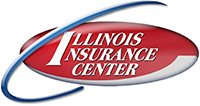Running a small business comes with countless responsibilities, and one of the most important is protecting your company from unexpected lawsuits and claims. That’s where liability insurance for small business owners becomes absolutely essential. This type of coverage acts as a financial safety net, protecting your business assets when accidents happen or someone gets hurt on your property.
Why Every Small Business Needs Liability Insurance for Small Business Protection
Starting a business is exciting, but it also opens you up to various risks that could potentially destroy everything you’ve worked so hard to build. Without proper liability coverage, even a minor accident could result in a lawsuit that costs thousands or even millions of dollars.
Small business liability protection helps cover legal fees, medical expenses, and damages when your business is held responsible for injuries or property damage. For instance, if a customer slips and falls in your store, your liability insurance can cover their medical bills and any legal costs if they decide to sue. Similarly, if your business operations accidentally damage someone else’s property, your coverage can help pay for repairs or replacement costs.
Moreover, many clients and vendors won’t work with businesses that don’t carry adequate liability insurance. Having this protection in place shows that you’re a responsible business owner who takes proper precautions to protect both your company and your customers.
Types of Liability Insurance for Small Business Coverage
Understanding the different types of liability coverage available can help you choose the right protection for your specific business needs. Each type addresses different risks that small businesses commonly face.
General Liability Insurance
General liability insurance serves as the foundation of most small business insurance packages. This coverage protects against common risks like customer injuries, property damage, and advertising injuries. If someone gets hurt on your business premises or if your company accidentally damages someone else’s property while providing services, general liability insurance steps in to help cover the costs.
This type of policy also covers legal defense costs, which can be expensive even if you win the case. Additionally, general liability insurance can help protect against claims of libel, slander, or copyright infringement in your advertising materials.
Professional Liability Insurance
Professional liability insurance, also known as errors and omissions insurance, protects businesses that provide professional services or advice. If a client claims that your professional services caused them financial harm, this coverage can help pay for legal defense costs and any resulting damages.
This type of coverage is particularly important for consultants, accountants, lawyers, doctors, and other professionals who provide specialized services. Even if you do everything right, clients sometimes blame service providers when things don’t go as expected, making professional liability insurance a wise investment.
Product Liability Insurance
If your business manufactures, distributes, or sells products, product liability insurance becomes critical. This coverage protects your business when someone gets injured or their property gets damaged due to a defect in your product.
Product liability claims can be extremely expensive, especially if multiple people are affected by the same defective product. This insurance helps cover legal fees, medical expenses, and compensation for damages, protecting your business from potentially devastating financial losses.
How Much Liability Insurance for Small Business Coverage Do You Need?
Determining the right amount of liability coverage depends on several factors specific to your business. The size of your company, the type of services you provide, and the level of risk associated with your operations all play a role in deciding how much coverage you need.
Most small businesses start with at least $1 million in general liability coverage, though many industries require higher limits. For example, construction companies typically need more coverage than retail stores because they face higher risks of causing property damage or injuries.
Consider your business assets when choosing coverage limits. If you have significant assets to protect, you’ll want higher coverage limits to ensure adequate protection. Additionally, think about your potential exposure to lawsuits. Businesses that serve the public or work in high-risk industries should consider higher coverage amounts.
You’ll also want to consider umbrella liability insurance, which provides additional coverage beyond your primary liability limits. This extra layer of protection can be cost-effective and provides peace of mind for business owners with substantial assets or higher risk exposures.
Key Benefits of Small Business Liability Coverage
Having proper liability insurance offers numerous advantages that go beyond just financial protection. These benefits can actually help your business grow and succeed in competitive markets.
First, liability insurance provides legal defense coverage, which means your insurance company will hire and pay for lawyers to defend your business if someone files a lawsuit. Legal fees can quickly add up, sometimes costing more than the actual claim settlement, making this benefit extremely valuable.
Second, having liability coverage can help you win more contracts and clients. Many customers and business partners require proof of insurance before they’ll work with you. By having proper coverage in place, you demonstrate professionalism and responsibility, which can give you a competitive edge.
Third, liability insurance protects your business assets and personal finances. Without coverage, you might have to pay claims and legal fees out of your own pocket, which could force you to close your business or file for bankruptcy. With proper insurance, you can focus on running your business instead of worrying about potential financial disasters.
Common Liability Insurance for Small Business Claims
Understanding the types of claims that commonly affect small businesses can help you appreciate why liability coverage is so important. These real-world examples show how easily accidents can happen and how expensive they can become without proper protection.
Slip and fall accidents represent one of the most common types of liability claims. These incidents can happen anywhere – in your office, retail store, or at a client’s location. Even minor falls can result in significant medical expenses and lost wages for the injured person.
Property damage claims also occur frequently, especially for businesses that work on-site at customer locations. For example, a plumber might accidentally cause water damage while fixing pipes, or a landscaper might damage a client’s fence while mowing. These accidents can result in expensive repair bills that could severely impact your business finances.
Professional mistakes can lead to costly claims as well. If you provide advice or services that result in financial losses for your clients, they might hold your business responsible for their damages. Professional liability insurance helps protect against these types of claims.
Product-related injuries can also result in significant liability claims. If someone gets hurt using a product your business sold or manufactured, you could face medical expenses, lost wages, and pain and suffering damages. These claims can be particularly expensive because they often involve serious injuries.
Choosing the Right Liability Insurance for Small Business Needs
Selecting the appropriate liability coverage requires careful consideration of your specific business risks and requirements. Different industries face different types of risks, so a one-size-fits-all approach doesn’t work when it comes to liability insurance.
Start by evaluating your business operations and identifying potential risks. Consider where you work, who you serve, and what could go wrong during normal business activities. For example, restaurants face different risks than consulting firms, and construction companies have different exposures than retail stores.
Next, research the insurance requirements in your industry. Some professions require specific types of liability coverage, while others have minimum coverage amounts mandated by law or professional associations. Understanding these requirements helps ensure you meet all necessary standards.
Consider your business growth plans as well. If you’re planning to expand your operations, hire more employees, or add new services, you’ll want coverage that can grow with your business. Some policies offer flexibility to adjust coverage limits as your business needs change.
Don’t forget to evaluate the insurance company’s financial stability and customer service reputation. You want an insurer that will be there when you need them and that can pay claims promptly. Reading customer reviews and checking financial ratings can help you make an informed decision.
How Illinois Insurance Center Can Help with Your Liability Insurance for Small Business
At Illinois Insurance Center, we understand that every small business has unique insurance needs. Our experienced team works closely with business owners throughout Illinois to identify risks and design comprehensive liability insurance packages that provide adequate protection at affordable rates.
We represent multiple insurance carriers, which allows us to shop around and find the best coverage options for your specific situation. Instead of being limited to one company’s products, we can compare policies from different insurers to ensure you get the best combination of coverage and price.
Our business insurance specialists take the time to understand your business operations, helping identify potential risks that you might not have considered. This thorough approach ensures that your liability coverage addresses all the important exposures your business faces
We also provide ongoing support after you purchase your policy. As your business grows and changes, we’ll review your coverage to make sure it still meets your needs. We can also help you file claims if necessary and advocate for you with the insurance company to ensure fair treatment.
The Cost of Liability Insurance for Small Business Coverage
Many small business owners worry about the cost of liability insurance, but the price of coverage is often much less than you might expect. Most general liability policies cost between $400 and $1,000 per year for small businesses, though the exact price depends on various factors.
Your business type significantly affects your insurance costs. Low-risk businesses like consulting firms typically pay less than high-risk operations like construction companies. The size of your business also matters – companies with more employees and higher revenues generally pay more for coverage.
Your location can impact costs as well. Businesses in areas with higher lawsuit rates or higher medical costs might pay more for liability coverage. However, the cost differences are usually relatively small compared to the protection you receive.
The coverage limits you choose also affect your premiums. Higher limits cost more, but the additional protection is often worth the extra expense. Many business owners find that doubling their coverage limits doesn’t double their premiums, making higher limits a good value.
Remember that liability insurance is a business expense that can often be deducted on your taxes. This tax benefit helps offset the cost of coverage, making it even more affordable for most small businesses.
Liability Insurance Requirements for Small Businesses in Illinois
Illinois has specific requirements for certain types of businesses and professions. Understanding these requirements helps ensure your business complies with all applicable laws and regulations.
Many Illinois cities and counties require businesses to carry liability insurance before they’ll issue business licenses or permits. The required coverage amounts vary by location, but most require at least $1 million in general liability coverage. Some areas require higher limits for certain types of businesses.
Professional service providers often face additional requirements. For example, many professional licensing boards in Illinois require liability insurance as a condition of licensure. These requirements help protect consumers and ensure that professionals can pay for damages if they make mistakes.
Contractors and construction companies typically need higher liability limits to obtain permits and work on commercial projects. Many general contractors require their subcontractors to carry specific amounts of liability insurance before they’ll allow them to work on job sites.
Even if your business isn’t required to carry liability insurance, having coverage is still a smart business decision. The potential costs of lawsuits and claims far exceed the cost of insurance premiums, making liability coverage a wise investment for virtually all businesses.
Protecting Your Business Assets with Proper Liability Coverage
Your business assets represent years of hard work and investment. Without proper liability insurance, these assets could be at risk if someone files a lawsuit against your company. Understanding how liability coverage protects your assets can help you make informed decisions about your insurance needs.
Liability insurance creates a barrier between your business assets and potential claimants. When someone files a covered claim against your business, the insurance company handles the legal defense and pays covered damages up to your policy limits. This protection helps keep your business assets safe from litigation.
Without liability coverage, you’d have to defend lawsuits using your own money and pay any resulting damages from your business or personal assets. This exposure could force you to liquidate equipment, empty business bank accounts, or even lose your business entirely to pay for one significant claim.
The peace of mind that comes with proper liability coverage is invaluable. Instead of worrying about potential lawsuits and claims, you can focus on growing your business and serving your customers. This confidence can actually help your business succeed by allowing you to take appropriate risks and pursue growth opportunities.
Getting Started with Liability Insurance for Your Small Business
Taking the first step toward protecting your business with liability insurance is easier than you might think. The process begins with understanding your specific needs and finding an insurance provider that can help you design appropriate coverage.
Start by making a list of your business activities and potential risks. Consider who you serve, where you work, and what could go wrong during normal operations. This risk assessment helps you communicate your needs to insurance professionals and ensures you get appropriate coverage.
Gather information about your business that insurance companies will need to provide quotes. This includes details about your operations, number of employees, annual revenue, and any previous claims or lawsuits. Having this information ready speeds up the quoting process and helps ensure accurate pricing.
Contact Illinois Insurance Center at (708) 524-4900 to discuss your liability insurance needs. Our experienced team can walk you through the process, explain your options, and help you find coverage that fits your budget and provides adequate protection.
We serve businesses throughout Illinois and surrounding areas. You can also visit our contact page to learn more about our services and schedule a consultation. Our team is ready to help you protect your business with comprehensive liability coverage.
Frequently Asked Questions About Liability Insurance for Small Business
1. What is liability insurance for small business and why do I need it?
Liability insurance for small business protects your company from financial losses when someone claims your business caused them injury or property damage. You need it because lawsuits can be extremely expensive, and without coverage, you might have to pay legal fees and damages from your own pocket, which could destroy your business.
2. How much does liability insurance for small business typically cost?
Most small businesses pay between $400 and $1,000 per year for general liability insurance. The exact cost depends on your business type, size, location, and the coverage limits you choose. High-risk businesses typically pay more than low-risk operations.
3. What does general liability insurance cover for small businesses?
General liability insurance covers customer injuries on your premises, property damage caused by your business operations, advertising injuries like libel or slander, and legal defense costs. It also covers medical expenses for people injured in connection with your business activities.
4. Do I need different types of liability insurance for my small business?
Many businesses need multiple types of liability coverage. General liability insurance covers basic risks, while professional liability insurance protects against errors in professional services. Product liability insurance covers injuries from defective products, and cyber liability insurance protects against data breaches.
5. How much liability insurance coverage should my small business have?
Most small businesses start with at least $1 million in general liability coverage, though many need higher limits. Your coverage amount should reflect your business assets, potential claim costs, and industry requirements. Consider an umbrella policy for additional protection.
6. Can I get liability insurance if my business has been sued before?
Yes, most insurance companies will still provide coverage even if you’ve been sued previously. However, previous claims might affect your rates or coverage options. It’s important to disclose any previous lawsuits when applying for coverage.
7. What happens if someone sues my business for more than my liability insurance covers?
If a claim exceeds your policy limits, you’ll be responsible for paying the excess amount from your own assets. This is why it’s important to choose adequate coverage limits and consider umbrella insurance for additional protection.
8. Does liability insurance cover employee injuries?
No, general liability insurance doesn’t cover employee injuries. Worker injuries are typically covered by workers’ compensation insurance, which is separate from liability coverage. Most states require businesses with employees to carry workers’ compensation insurance.
9. How quickly can I get liability insurance for my small business?
Many liability insurance policies can be issued within 24 to 48 hours once you complete the application and pay the premium. Some simple businesses can get coverage even faster, while complex operations might take longer to underwrite.
10. Will my liability insurance rates increase if I file a claim?
Filing a claim might affect your future rates, but it depends on the circumstances and your overall claims history. Some insurers offer claim-free discounts, while others might increase rates after significant claims. Your insurance agent can explain how claims might affect your specific situation.
Bottom Line: Protect Your Business Investment
Starting and running a small business requires significant time, money, and effort. Liability insurance for small business owners represents a small investment that can protect everything you’ve worked to build. Without proper coverage, a single lawsuit could destroy your business and personal finances.
The Illinois Insurance Center team understands the unique challenges small business owners face. We work with businesses throughout the areas we serve to provide comprehensive liability coverage that offers real protection at affordable rates. Our experienced agents take the time to understand your specific needs and design coverage that addresses your unique risks.
Don’t wait until it’s too late to protect your business. Contact Illinois Insurance Center today at (708) 524-4900 or visit our contact page to learn more about liability insurance options for your small business. Our team is ready to help you find the right coverage to protect your business, your employees, and your future success.





